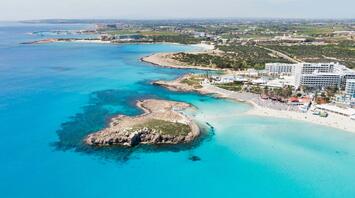Cyprus Has Best Quality Bathing Waters in Europe, Greece in Fourth Place

Cyprus ranked at the top in Europe for the quality of its bathing waters in 2023, with Greece securing the fourth position. This information comes from an assessment published on Tuesday by the European Environment Agency (EEA) in collaboration with the European Commission.
In Cyprus, 97% of the surveyed bathing waters received an ‘excellent’ score. A total of 123 coastal bathing sites were assessed, with 1,150 samples taken across these locations. The EEA classifies bathing waters based on two microbiological parameters: Escherichia coli and intestinal enterococci, as defined by the Bathing Water Directive.
The high quality of bathing waters in Cyprus is significant for swimmers' health, environmental sustainability, and the island's economy, which heavily relies on tourism. Agriculture Minister Maria Panayiotou emphasized that this achievement is due to the effective cooperation between the environmental department, public health services, state laboratory, and local authorities.
Greece, with 95.8 percent of its 1,731 beaches rated as excellent, came in fourth place in Europe. The country followed Cyprus, Austria (96.9 percent), and Croatia (96.7 percent). Notably, Greece did not record any poor-quality bathing sites, with 17 rated as good, four as satisfactory, and 51 not classified.
Recently, Greece also earned recognition for having the second-highest number of Blue Flag beaches globally. This accolade signifies beaches that are not only beautiful but also committed to sustainability and excellent amenities. Greece boasts 596 Blue Flag beaches, with 94 located in the Halkidiki region.
In 2023, the majority of bathing water sites in Europe met the EU’s stringent "excellent" quality standards. This accounted for 85 percent of Europe’s popular bathing waters. Additionally, 96 percent of all officially identified bathing waters in the EU met the minimum quality standards, with only 1.5 percent rated as ‘poor’.
The assessment provides valuable information on where swimmers can find safe bathing sites in Europe this summer, focusing on monitoring bacteria that can cause serious illnesses rather than general water quality.



















